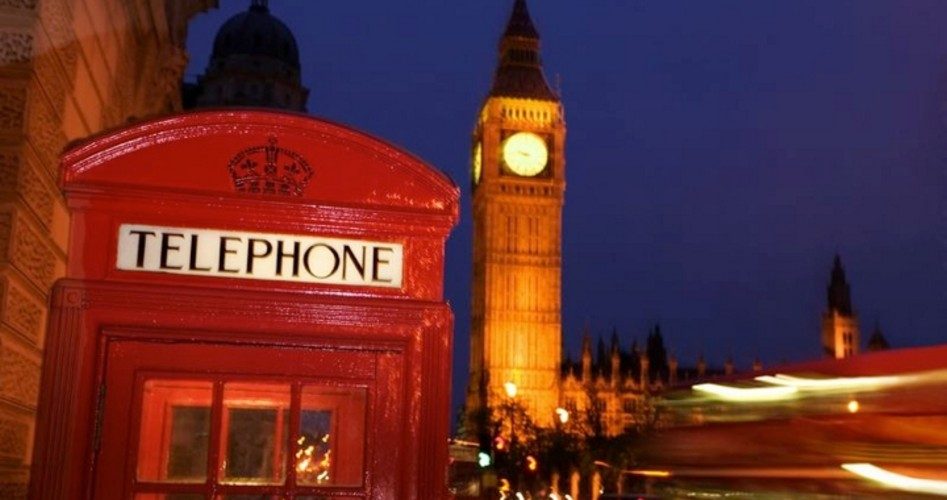
“Unless you are a criminal, then you’ve nothing to worry about from this new law.”
How many times have humans heard that old saw? Only as many times as governments have taken away more of their liberties in the name of fighting crime.
The latest politician to utter those infamous words is British Home Secretary Theresa May. Defending her government’s plan to require communications providers to store details of every e-mail, telephone call, and text message in the United Kingdom, May called the proposal “sensible and limited” and denounced opponents as “conspiracy theorists … with ridiculous claims about how these measures infringe freedom.”
“I just don’t understand why some criticize these proposals,” she wrote in a June 14 op-ed in the Sun.
Who, after all, could object to a plan that, according to the Associated Press, “would force communications providers … to gather a wealth of information on their customers” and then make that data available to law enforcement on request, giving “authorities a remarkably rich picture of their citizens’ day-to-day lives”?
Under the bill, says the AP:
Providers would log where emails, tweets, Skype calls and other messages were sent from, who they were sent to, and how large they were. Details of file transfers, phone calls, text messages and instant conversations, such as those carried over BlackBerry Messenger, would also be recorded.
The bill also demands that providers collect IP addresses, details of customers’ electronic hardware, and subscriber information including names, addresses, and payment information.
Even physical communications would be monitored: Address details written on envelopes would be copied; parcel tracking information would be logged as well.
All the data would be kept for up to a year or longer if it was the subject of legal proceedings.
“Officials insist they’re not after content,” the AP writes. “They promise not to read the body of emails or eavesdrop on phone calls without a warrant.”
This assumes, of course, that one can trust these officials. Richard Littlejohn of the Daily Mail clearly does not. “Whenever you give any agent of the state extra powers,” Littlejohn observed, “they will always, always abuse it.”
“The police and politicians pretend that what they are proposing is benign and in our best interests,” he wrote. “Unfortunately, experience teaches us otherwise. The state is obsessed with acquiring and storing private information.” Were the bill to become law, he argued, “both the police and the security services would be tempted to go on speculative fishing expeditions against all and sundry.”
Indeed, officials of the current U.K. government — the very government proposing this Orwellian new law — have already proven themselves untrustworthy, noted Littlejohn’s colleague Adrian Hilton:
Both the Conservative Party and the Liberal Democrats appear to have forgotten what they promised in their 2010 manifestos. [Prime Minister] David Cameron pledged “to restore our civil liberties.” Under that precise heading, he said: “We will scale back Labor’s database state and protect the privacy of the public’s information.” [Deputy Prime Minister] Nick Clegg talked similarly of “restoring your freedoms” and of protecting “personal privacy.” He pledged to “end plans to store your email and internet records without good cause,” because “we need to restore the rights of individuals in the face of encroaching state power, in keeping with Britain’s tradition of freedom and fairness.”
David Davis, a Member of Parliament and former chairman of the Conservative Party, has also criticized the bill strongly. In an interview with the BBC he called it “incredibly intrusive.”
May and other supporters of the bill insist that they are merely seeking to update the current surveillance laws to keep up with changing technology. But as ZDNet’s David Meyer points out, the fact that only now, after over 350 years of national postal service in the U.K., is the government seeking to track every piece of mail proves that the bill is not simply intended to bring the law up to date:
Letters and postcards have never been logged and tracked, unless the sender paid for that to happen. Emails are the digital age’s equivalent to letters. Creating the structures proposed in the Communications Data Bill (CDB) involves creating a level of surveillance that simply was not there before.
And using the bill to introduce postal logs for the first time proves that this is not all about keeping up with technology. It is about applying unprecedented rules to old technology as well as new.
Yet May says she cannot fathom why anyone would object to her perfectly reasonable proposal — and that anyone who does object must be a “conspiracy theorist.” Hilton’s response:
To be called a “conspiracy theorist” for expressing legitimate concerns about the extent of state intrusion into our private affairs reduces the whole debate to puerile insult hurling: it is a slur designed to isolate and ridicule one’s critics and opponents in order to shut down all discussion and debate. By deploying the term against people like David Davis, the Home Secretary shows herself to be not only unreasonable but devoid of cogent political argument.
Conspiracy is, in any case, no mere theory: it is as old as man’s desire to acquire power in the pursuit of community harmony and societal governance. And when you consider that politicians tend to pledge a myriad of assurances in their manifestos, only to plot and intrigue to do completely the opposite once in power, the conspiracy becomes manifest.
The proposal is still a draft bill and may be changed before it is submitted to Parliament, and Parliament may reject or modify it. There is, therefore, still time for what remains of Britons’ privacy — the U.K. is already “the most surveilled country” among Western industrialized states, according to Dr. David Murakami-Wood of the Surveillance Studies Network — to be preserved. Should the bill in its current form become law, however, Her Majesty’s subjects will have little choice but to learn to love Big Brother.


